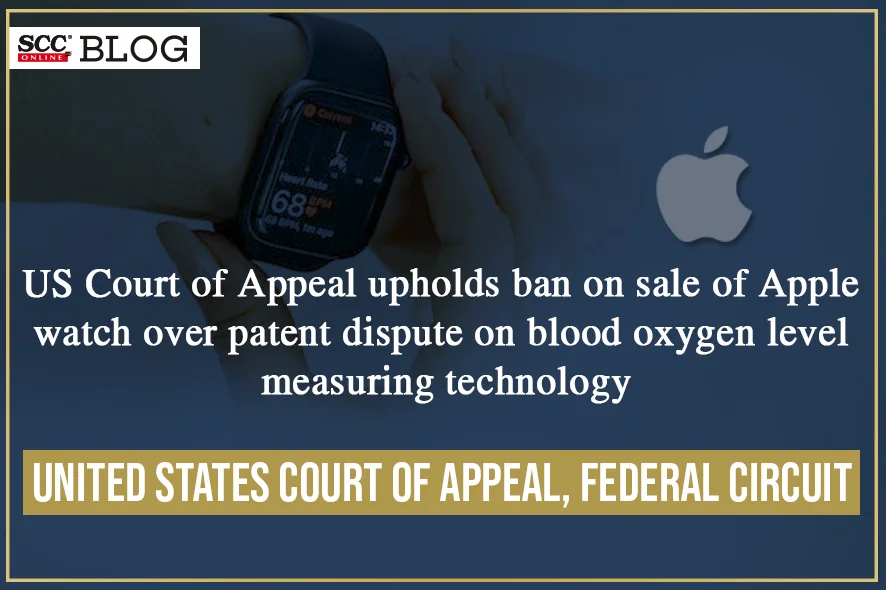United States Court of Appeal, Federal Circuit: In an appeal by Apple Inc., against International Trade Commission’s (‘ITC’) limited exclusion Order in their Investigation in the matter of “certain light-based physiological measurement devices and components thereof”, whereby, Apple was prohibited from unlicensed entry of infringing wearable electronic devices with light-based pulse oximetry functionality, Alan D. Lourie, Sharon Prost and Richard G. Taranto, J. dismissed Apple’s appeal and lifted the interim stay.
Background
The complaint against Apple was filed by Masimo Corporation and Cercacor Laboratories, Inc., a medical technology company which alleged violations of Section 337 of the Tariff Act of 1930, which eventually were found by the ITC to be true in its investigation.
Section 377 of the Tariff Act of 1930, provides that unfair methods of competition and unfair acts in the importation of articles into the United States, or in their sale, are unlawful if these unfair acts or methods of competition have the effect or tendency to (i) destroy or to substantially injure an industry efficiently and economically operated in the United States, (ii) prevent the establishment of such an industry, or (iii)restrain or monopolise trade and commerce in the United States.
A limited exclusion order prohibiting the unlicensed entry of infringing wearable electronic devices with light-based pulse oximetry functionality and components thereof covered by certain claims of U.S. Patent Nos. 10,912,502 or 10,945,648 that are manufactured by or on behalf of, or imported by or on behalf of, Apple or any of its affiliated companies, parents, subsidiaries, or other related business entities, or its successors or assigns, and a cease and desist order against Apple and any of its affiliated companies was issued.
The Exclusion Order Enforcement Order Branch of U.S. Customs and Border Protection (EOE Branch) ordered that the Apple’s redesigned products were not subject to the limited exclusion and cease and desist order.
Order
Referring to Nken v. Holder, 556 U.S. 418, 434 (2009), the Court examined the following four factors while deciding Apple’s plea:
-
Whether the movant made a strong showing of likelihood of success on the merits;
-
Whether the movant will be irreparably harmed absent a stay;
-
Whether issuance of the stay will substantially injure the other parties interested in the proceeding;
-
Where the public interest lies
On consideration of the four factors and EOE Branch’s order, the Court denied Apple’s appeal.
[Apple Inc., v. International Trade Commission, Case: 24-1285, Decided on 17-01-2024]







